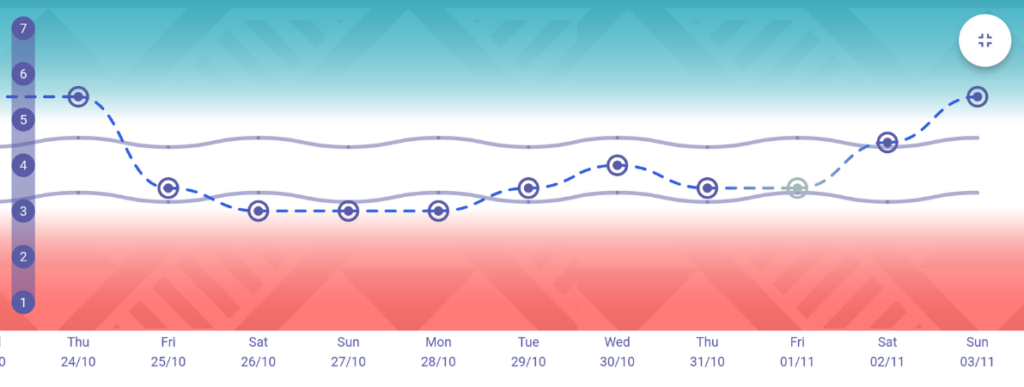I was recently able to measure the affects of sleep-deprivation on my mental wellbeing. Marry this narrative to my wellbeing river below to see for yourself.
In the buildup to Diwali, which coincided with Halloween this year, I was in Malaysia working and eating. On Friday 25th I caught a train to Penang Island for the weekend and slept poorly that night due to indigestion triggered by a wheat allergy. This lasted all weekend (damn you banana pancakes!) and my mental wellbeing dipped in response.
On the train back to KL on Sunday I was looking forward to a blissful rest, but alas. In my eagerness to enjoy Diwali up-close I had booked a room in the middle of Brickfields, which is the Indian Hindu district of Kuala Lumpur. What I hadn’t realised was how fireworks were central to the festivities (in hindsight: Festival of Lights, obvious really).
Stalls throughout Brickfields were heaving with cheap and powerful firecrackers, Roman candles, bottle rockets, and all manner of colourful explosives. There was barely a moment unbroken by crackling, fizzing, or bomb-blasts echoing around the towers. From 8am in the morning till 4am the next day, roads and alleys became places of celebration. Traffic waited patiently for children who ran out to let off cascades and mortars for all to see.
For better or worse, this kept me in a tripped-out sleep-debt through the whole holiday. It wasn’t until the main celebrations had finished on November 1st that I could rest again. As I caught up on sleep my mental wellbeing quickly bounced back.
All told, the effect of mild sleep-deprivation decreases my mental wellbeing and happiness by about 30%. I believe this to be pretty typical for a human.
I like this little study in particular because I was following the local customs, so wasn’t drinking alcohol and only had a little caffeine, so the data is quite reliable (for me at least).
A cool little illustration of something you already knew.
Sleep tight!
30 November 2024, Chiang Mai.


